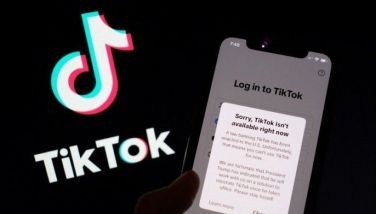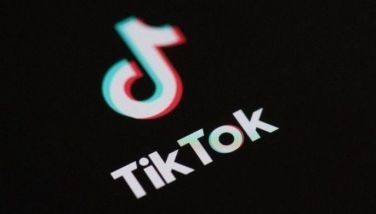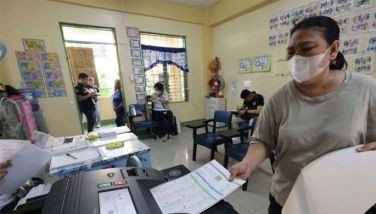In search of the next big tech startup
MANILA, Philippines - Can the next big tech startup like Facebook, Twitter, Spotify, Snapchat or Skype really come from the Philippines?
The government is dreaming big that homegrown young tech entrepreneurs will also put the country on the global map and maybe, to begin with, just to be in the radar of foreign and local investors.
A national roadmap for digital startups was unveiled at the recently concluded “Geeks On a Beach Conference” in Boracay to kickstart a national initiative to set up frameworks and policies that would to incentivize entrepreneurship and build the industry as the next growth engine for the Philippines.
“We are hoping that with this roadmap in place everybody will be working towards one direction and support our aspiration to have a very robust startup ecosystem,” says Mon Ibrahim, deputy executive director, (Department of Science and Technology-ICT Office (DOST-ICTO).
A product of collaboration among key stakeholders in the industry – startup founders, aspiring entrepreneurs, investors, the academe and venture capitalists – the roadmap aims to the number of startups from an estimated 100 this year to 500 by 2020, with total funding of at least $200million and a cumulative valuation of $2 billion.
Jojo Flores, co-founder and VP, Plug and Play Tech Center, a global innovation platform based in Silicon Valley, cited a study of graduates of the Massachusetts Institute of Technology (MIT) showing that over a 30-year period, the school’s alumni created 27,000 companies with aggregate sales of $2 trillion and employed three million people.
“This is just one school. Our thesis here is that what if as a country we do something about and really build an economy based on startups and innovation technology, entrepreneurship. It can be really big,” he said.
The 500 startups the roadmap envisions to help set up and support are expected to employ 8,500 highly skilled workers.
Unique ecosystem
Beryl Li, senior consultant, Philippine Startup Roadmap, DOST-ICTO, says what the stakeholders want is to build a unique system here that would highlight our competitive advantages and find solutions to our weaknesses.
“Our key strengths include the fact that it is cheaper cost to operate here, we have a big population of 108 million people, whose median age is 25 years old. We have an English speaking highly trainable workforce. Our policies, however, are incoherent, we have proper Internet infrastructure and our young workforce need to get exposed,” she says.
With the inspiring success of the IT-BPO industry, which now employs over one million people and revenue of approximately $15 billion per year, Flores says the Philippines has an opportunity to leapfrog and create a much bigger industry which is not service based but more product based, more IT-based.
The Philippine Roadmap for Digital Startups defines a startup as a recognized business entity that is less than five years old, registered with the financial regulatory authorities of any country, provided that majority of its team is operating and residing in the Philippines, and should have at least one founder who is working full time.
Internet-related technology startups can create products intended for any industry such as healthcare, finance, agriculture, education, social entrepreneurship, communication or disaster management, among others.
According to the report, most of the startups in the country today are in their early stage or seed stage, while only a few startups have made their exit. These include companies such as Chikka, Level Up, Sulit, Airborne Access, Morphlabs, iRemit and Xurpass.
“By 2018, the goal is to have more startups in the level of Series A funding, and beyond 2018, more startups should have successfully exited in the ecosystem,” the report states.
Li says the industry should focus on its own but should also collaborate with other ecosystems around the world, learn from them, try to get the best practices and adopt it locally.
Incentive structure
Sen. Paolo Benigno “Bam” A. Aquino IV filed a bill in May 2014 that seeks to exempt startup enterprises from taxes arising from the first two years of operation.
Karl Vendell Satinitigan, director II, Office of Sen. Aquino, says the bill was filed to start the conversation around startups and consultations are ongoing.
“Many of the contents of the startup roadmap will be inputs for the bill, which is based on a Singapore Law that provides incentives for startups,” he says. “But there are also other initiatives that we believe could help the ecosystem though they are not necessarily specifically for startups such as the Philippine Competition Law (Republic Act No. 10667) signed by the President recently and the Entrepreneurship and Financial Literacy Act that is just awaiting the President’s signature.”
Earl Valencia, president, Ideaspace Foundation, says the good thing about the Singapore model is that it incentives companies and people to allocate their investment dollars to some of these kind of risky assets.
“Just imagine if you have even a local group of entrepreneurs to fund upcoming startups in a local town that is a huge step already. Maybe we could have an incentive structure to take a chance in someone from towns or industries,” he says.
Arup Maity, founding president and CEO of BlastAsia), says one very important thing for startups other than the proposed tax break is getting rid of the pain points of setting up a company.“It’s an obstacle,” he says. “If there is a simpler model for setting up companies, that would be a big help,” he says.
The involvement of the academe cannot also be ignored as there are a lot of great innovations coming out of the universities but there is a major gap in getting the innovation into the mainstream commercial side.
“We’d like to see frameworks for licensing, for example, to be formalized in the Philippines so that inventions and businesses formed in universities have clear paths to commercialization, says Jay Fajardo, co-founder and CTO, Medifi.
Ibrahim emphasized in his keynote speech that the roadmap is not written by the government but a collaborative work of the startup community.
“Initially, the roadmap is 80 percent what we need from the government and 20 percent what we need to do ourselves. Eventually, it will evolve to 80 percent what the community will have to do and 20 percent what the government will have to do to help the Philippine startup agenda,” he says.
So can the Philippines can produce the next big thing in the tech industry? Everybody is hopeful but the next steps in the next few years would be crucial.
- Latest

























